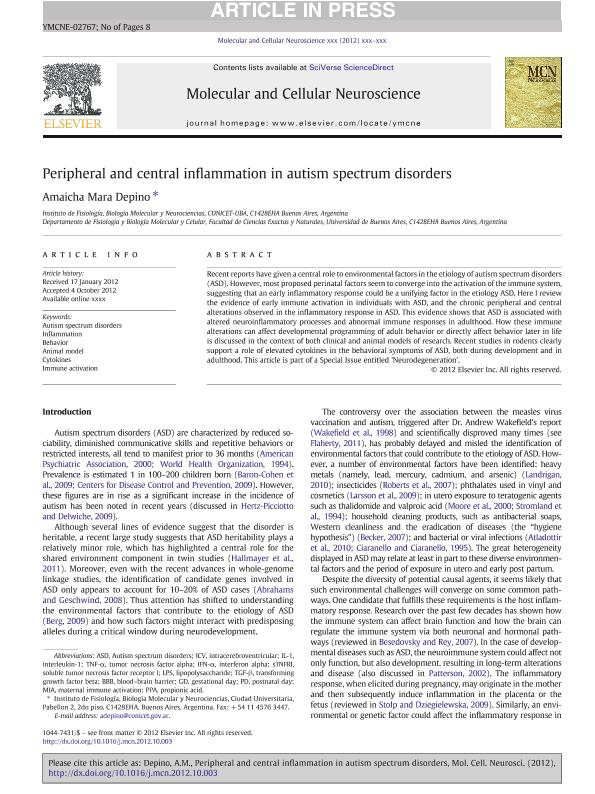Artículo
Peripheral and central inflammation in autism spectrum disorders
Fecha de publicación:
10/2012
Editorial:
Elsevier Inc
Revista:
Molecular And Cellular Neurosciences.
ISSN:
1044-7431
Idioma:
Inglés
Tipo de recurso:
Artículo publicado
Clasificación temática:
Resumen
Recent reports have given a central role to environmental factors in the etiology of autism spectrum disorders (ASD). However, most proposed perinatal factors seem to converge into the activation of the immune system, suggesting that an early inflammatory response could be a unifying factor in the etiology ASD. Here I review the evidence of early immune activation in individuals with ASD, and the chronic peripheral and central alterations observed in the inflammatory response in ASD. This evidence shows that ASD is associated with altered neuroinflammatory processes and abnormal immune responses in adulthood. How these immune alterations can affect developmental programming of adult behavior or directly affect behavior later in life is discussed in the context of both clinical and animal models of research. Recent studies in rodents clearly support a role of elevated cytokines in the behavioral symptoms of ASD, both during development and in adulthood. This article is part of a Special Issue entitled ‘Neuroinflammation in neurodegeneration and neurodysfunction’.
Palabras clave:
Autism Spectrum Disorders
,
Inflammation
,
Behavior
,
Animal Model
Archivos asociados
Licencia
Identificadores
Colecciones
Articulos(IFIBYNE)
Articulos de INST.DE FISIOL., BIOL.MOLECULAR Y NEUROCIENCIAS
Articulos de INST.DE FISIOL., BIOL.MOLECULAR Y NEUROCIENCIAS
Citación
Depino, Amaicha Mara; Peripheral and central inflammation in autism spectrum disorders; Elsevier Inc; Molecular And Cellular Neurosciences.; 53; 10-2012; 69-76
Compartir
Altmétricas




